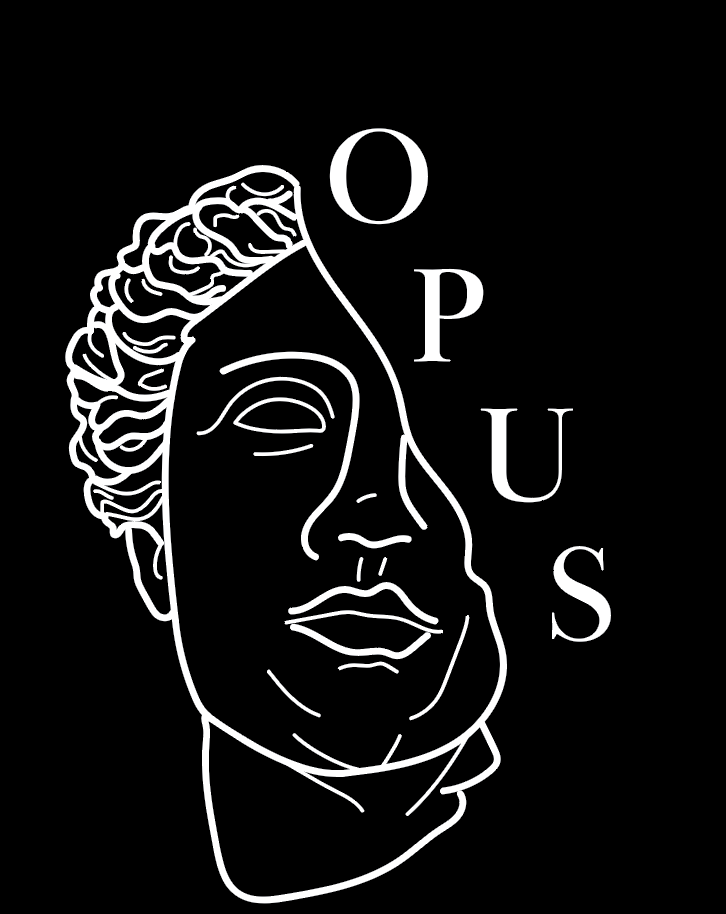Why won’t my comfort and creativity get along?
In early April I drove home to Indiana after a two-week quarantine, during which I readjusted to not waking up in my little apartment in Dublin’s Liberties. It was a little rough, I’ll be honest, but after many tea-fueled ruminations and long walks on the beach I felt ready to move on to the next part of my life, which, in everyone’s case, turned out to be a long summer of coronavirus. I tried to remain positive and hyped myself up on the thought that no matter what happened this summer, I would have plenty, PLENTY of time to write. I had just returned from a semester in Dublin for a writer’s program through IES Abroad, caffeinated off long discussions about James Joyce and W. B. Yeats and inspired by my friends and classmates to become the best writer I could. An extra-long, now internship-free summer seemed the perfect time to lay all my Irish inspiration out on the table and bang out a collection of writings that even Seamus Heaney would be impressed by.
Well, fast forward to this point in the school year, I guess, because in terms of how much I wrote, the summer might as well have never happened. The pathetic few pages I’d managed to fill couldn’t even be called substantial, much less impressive. Instead of methodical, focused writing sprints holed up in my dark room, my family below worrying for my sanity, my time home was saturated with the most intense ennui I’d ever experienced. There was no drive, no muse, no rattling desire to translate the things in my head to things on a page. Instead I felt the urge to sleep through the entire day and to fill the moments I couldn’t be asleep with TV. It was a summer of family meals and board games, of gardening in the cool mornings and reading through the hot evenings, of finding peace in the everyday atmosphere. But it most definitely was not a summer of writing stories, brainstorming poetry, or expressing my creativity.
When I look back on the summer, I find myself incredibly frustrated at how little I did of the things that, professionally, really matter. Any writer who hopes to become published and successful enough to build a life off of his art, would be thrilled with the opportunity that this past summer offered, especially a writer who’d just spent the entirety of the semester before honing his craft and feeding his inspiration. Toward the end of the spring, I felt like I’d been handed every tool I could possibly need and shuffled out the door separating myself and the Real World of Writing, with voices behind me shouting, “Welcome to life! Don’t look back.”
So what went wrong?
How could I go from literal motivation running through my veins not being able to bear writing 100 words a day? After a little bit of time the answer was obvious to me, as I’m sure it is obvious to all of you; comfort killed my creativity. When I wasn’t working or taking summer classes, it was so easy to push off the tortuous art of writing in favor of a far more effortless and enjoyable mode of spending time: doing nothing. In my mind, the idea of setting an hour or half-hour timer and retreating somewhere quiet so I could expand on my medieval fantasy plot was so agonizing that I couldn’t bear to think about it, and instead spent my free time avoiding the very thought.
The person I was this summer largely conflicts with the version of myself I’d built up in my head, whom I always thought was so driven and so passionate about his writing. Even though I am a creature of comfort, I never thought it would get in the way of what I desperately want to spend the rest of my life doing. So why did it? Comfort and free time should intensify one’s desire, not defuse it. We read all the time about artists who isolate themselves on a desolate cliffside retreat, seeing no one and doing nothing but writing on a typewriter in shaky cabin light, who walk out six months later with a deranged mind and their next bestseller. Secluded from the business, sociality, and stress of the school semester, why couldn’t I accomplish the same task?
Whenever I come back home to Indiana, whether it’s for a few days or several weeks, I notice the same trend occurring over and over. I can feel myself slip into a lull of passivity unencumbered by the stress and stimulus of Hope College. Instead of running with the same drive I possess when there’s deadlines to meet, I sort of let go of my energy and allow myself to relax. Which is good, right? Life without relaxation is a garbled mess I want nothing to do with. There must be a way, as a writer, to balance work and leisure, just like there must be a way, as an artist, to balance comfort and creativity.
Creativity requires regular stimulation. I’ve found that my writing is at its best when I’m taking a fiction or poetry class, where almost on a daily basis I’m being exposed to new authors, styles of writing, and narratives. Ireland was a veritable goldmine of creativity. It felt like the very ghosts of the city were filtering out of the historic walls to move my pen across the page (or my fingers across the keys). Every class was engineered to spark my writer’s imagination, every moment in the city a poem within itself. There was something new every day, whether it was a person I’d never met before, a town I’d never visited, or a part of Dublin I’d never explored. So it was quite the dramatic change coming back home, where I spent the entirety of my day in an increasingly monotonous drone. Thus, the origin of the problem presents itself: my dream hobbit existence is my downfall. I personally loved having the same schedule every day, the most stressful event being my weekly excursions to Meijer with my mom (which, actually, in those early days of COVID-19, was quite stressful). The comfort of home surrounded me like an oppressive bunny, making me simultaneously desire freedom while fearing anything that would take me beyond the front door.
Needless to say, I was relieved to find that, upon arrival on campus this semester, my creativity returned to me, at first in drops, and now a steady rivulet coloring my daily thoughts and actions. And I’m thankful it’s back. But I can’t help knowing that the next time I indulge in comfort, the next time I return home — whether at the end of this semester or randomly in the middle, because who really knows — I’ll have to wave goodbye to my inspiration as it turns down the street. Knowing this inevitable end, I’m tearing at my hair and searching for any method or plan where, no matter what situation I’m in, I can set aside time, brainpower, and motivation to write. My amazingly probable future as a bestselling novelist hangs in the balance; all bets are off.
What I’ve learned, after watching a myriad of YouTube videos by influencers who make me hate my life, is that creativity is an elusive b**** that has many forms and comes to different people in many ways (outstanding). For some people it’s triggered by the scent of spiced pear tea; for others it only shows itself during the wee hours of the night when the moon waxes red and you can hear Satan pacing the hallways. Sometimes creativity demands a blood sacrifice, but sometimes it only asks for the milk of a pygmy goat. Often it will whisper to you, but only in Morse code, and often it scratches subtext across the white concrete walls of the engineering building. All in all, very exciting stuff.
To get to the point, I find creativity to be as boring as the will to do homework. It’s something that, in the moment, is painfully unglamorous and needs to be forced. If you wait around for creativity to strike, you’ll be sitting with back pain in a straight-backed chair with nothing to show for it. Creativity isn’t easy to conjure, but it can be facilitated through regular stimulation, specifically from a source of passion. Creativity is about finding something one cares about and digging deep, deeper than one would think necessary. In Ireland, I was surrounded by the history, art, and nature of the one place I loved more than any other, and that defined the medium through which I created my truly debatable masterpieces of the semester. So when I’m home, even if I’m not in Ireland, I need to connect with the things that inspire me and to force motivation, even when it’s the last thing I want to do. This goes for wherever I’m at, whether it’s home or abroad or at good old Hope College. Creativity and comfort will never go hand in hand. They’re two sides of the same coin in the fact that neither can be heads-up at the same time. It’s always compromise, deciding which side should be up at what time. As a writer, this is a lifelong challenge. We must sacrifice a lot for our art, and sometimes that is the comfort of our own homes. The key, as always, is finding that easy medium. Our goal as artists is to search for the liminal space where even in the confines of comfort, inspiration can grow, and even in the madness of creativity, contentment can be bred.


Leave a Reply